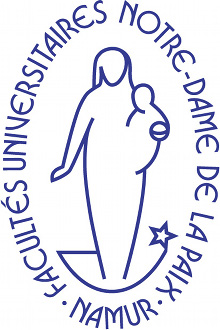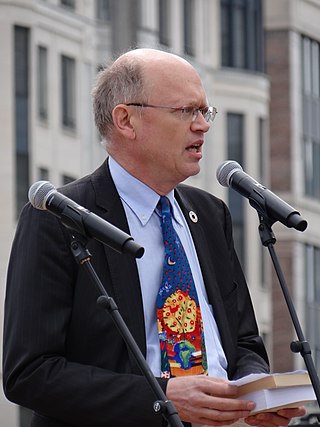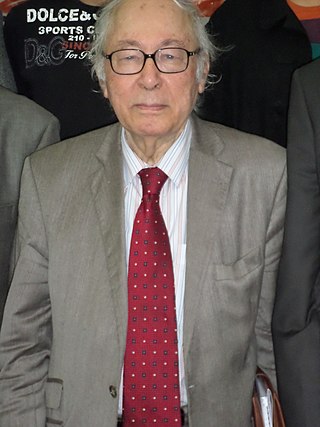
Avram Noam Chomsky is an American professor and public intellectual known for his work in linguistics, political activism, and social criticism. Sometimes called "the father of modern linguistics", Chomsky is also a major figure in analytic philosophy and one of the founders of the field of cognitive science. He is a laureate professor of linguistics at the University of Arizona and an institute professor emeritus at the Massachusetts Institute of Technology (MIT). Among the most cited living authors, Chomsky has written more than 150 books on topics such as linguistics, war, and politics. Ideologically, he aligns with anarcho-syndicalism and libertarian socialism.
The Sokal affair, also called the Sokal hoax, was a demonstrative scholarly hoax performed by Alan Sokal, a physics professor at New York University and University College London. In 1996, Sokal submitted an article to Social Text, an academic journal of cultural studies. The submission was an experiment to test the journal's intellectual rigor, specifically to investigate whether "a leading North American journal of cultural studies—whose editorial collective includes such luminaries as Fredric Jameson and Andrew Ross—[would] publish an article liberally salted with nonsense if (a) it sounded good and (b) it flattered the editors' ideological preconceptions."

Georges Henri Joseph Édouard Lemaître was a Belgian Catholic priest, theoretical physicist, mathematician, astronomer, and professor of physics at the Catholic University of Louvain. He was the first to theorize that the recession of nearby galaxies can be explained by an expanding universe, which was observationally confirmed soon afterwards by Edwin Hubble. He first derived "Hubble's law", now called the Hubble–Lemaître law by the IAU, and published the first estimation of the Hubble constant in 1927, two years before Hubble's article. Lemaître also proposed the "Big Bang theory" of the origin of the universe, calling it the "hypothesis of the primeval atom", and later calling it "the beginning of the world".

UCLouvain or Université catholique de Louvain is Belgium's largest French-speaking university. It is located in Louvain-la-Neuve, which was expressly built to house the university, and Brussels, Charleroi, Mons, Tournai and Namur. Since September 2018, the university has used the branding UCLouvain, replacing the acronym UCL, following a merger with Saint-Louis University, Brussels.

Fashionable Nonsense: Postmodern Intellectuals' Abuse of Science, first published in French in 1997 as Impostures intellectuelles, is a book by physicists Alan Sokal and Jean Bricmont. As part of the so-called science wars, Sokal and Bricmont criticize postmodernism in academia for the misuse of scientific and mathematical concepts in postmodern writing.

The Louvain School of Management is the international business school of the University of Louvain (UCLouvain), Belgium, founded in 1897. The faculty offers courses on the campuses of Louvain-la-Neuve, UCLouvain FUCaM Mons and UCLouvain Charleroi.

Gérard Garitte (1914–1990) was a Belgian historian and an academic at the Catholic University of Leuven and later the French-speaking University of Louvain in Louvain-la-Neuve, Belgium. He raised the study of Georgian ecclesiastical literature to a high level. In 1959, he was awarded the Francqui Prize on Human Sciences. In 1962, strongly opposed to the expulsion of French speakers from the Catholic University of Louvain, he created the ACAPSUL movement together with Georges Lemaître to fight against the split of the university.

The University of Namur or Université de Namur (UNamur) is a Jesuit university in Namur, in the French Community of Belgium. Both teaching and research in the university are carried out by six faculties.

Jean-Pascal van Ypersele de Strihou is a Belgian academic climatologist. He is a professor of Environmental Sciences at the UCLouvain (Belgium). As a previous vice-chair of the IPCC, Van Yp is one of the forerunners of climate change mitigation through strong decrease of fossil fuel consumption.
The term physics envy is used to criticize modern writing and research of academics working in areas such as "softer sciences", liberal arts, business administration education, humanities, and social sciences. The term argues that writing and working practices in these disciplines have overused confusing jargon and complicated mathematics to seem more 'rigorous' and like heavily mathematics-based natural science subjects like physics.

Jean-Claude Pecker was a French astronomer, astrophysicist and author, member of the French Academy of Sciences and director of the Nice Observatory. He served as the secretary-general of the International Astronomical Union from 1964 to 1967. Pecker was the President of the Société astronomique de France (SAF), the French amateur astronomical society, from 1973–1976. He was awarded the Prix Jules Janssen by the French Astronomical Society in 1967. A minor planet is named after him. Pecker was a vocal opponent of astrology and pseudo-science and was the president of the Association française pour l'information scientifique (AFIS), a skeptical organisation which promotes scientific enquiry in the face of quackery and obscurantism.

Michel Weber is a Belgian philosopher. He is best known as an interpreter and advocate of the philosophy of Alfred North Whitehead, and has come to prominence as the architect and organizer of an overlapping array of international scholarly societies and publication projects devoted to Whitehead and the global relevance of process philosophy.

Abdeljelil Temimi, also transliterated as Abdoljalil Tamimi, is a Tunisian historian. He specialises in the cultural and architectural influences of the Ottomans and Moriscos in the Arab world.

The Association française pour l'information scientifique or AFIS is an association regulated by the French law of 1901, founded under the leadership of Michel Rouzé in November 1968. As a skeptical organisation, it has been a member of the European Council of Skeptical Organisations since 2001, and publishes the magazine Science et pseudo-sciences.

The Teissier affair was a controversy that occurred in France in 2001. French astrologer Élizabeth Teissier was awarded a doctorate in sociology by Paris Descartes University for a doctoral thesis in which she argued that astrology was being oppressed by science. Her work was contested by the scientific community within the context of the science wars, and compared to the Sokal hoax. Criticisms included the alleged failure to work within the field of sociology and also lacking the necessary scientific rigour for a doctoral thesis in any scientific field. The university and jury who awarded the degree were harshly criticised, though both they and Teissier had supporters and defenders.

The Musée L or Musée universitaire de Louvain, French for: Louvain University Museum, is a Belgian university museum of the University of Louvain (UCLouvain) located in Louvain-la-Neuve, Walloon Brabant, Belgium.

UCLouvain Charleroi is a campus of the University of Louvain in Charleroi, Belgium. Consisting of 3 faculties and a series of research centers and institutes, UCLouvain Charleroi consists of the Maison Georges Lemaître, in the center of the city, and a branch in Montignies-sur-Sambre.

The Faculty of Economic, Social and Political Sciences and Communication (ESPO) is a faculty of the University of Louvain, located on the campuses of Louvain-la-Neuve, FUCaM Mons and UCLouvain Charleroi. It originates in the School of Political and Social Sciences founded by Jules Van den Heuvel in Louvain in 1892. With over 6000 students, it is UCLouvain's largest faculty.
Jean-Pierre Grünfeld is a French nephrologist. He was a doctor at the Necker-Enfants malades hospital and a professor at the University of Paris Descartes. He is Membre correspondant of the French Academy of sciences and a foreign correspondant member of the Royal Academy of Medicine of Belgium. He is a Chevalier (Knight) of France's Legion of Honour (1995).

Sébastien Point is a French physicist, engineer, researcher and specialist in science and technology who specialises in lighting with a particular focus on the biological and health effects of blue light.
















